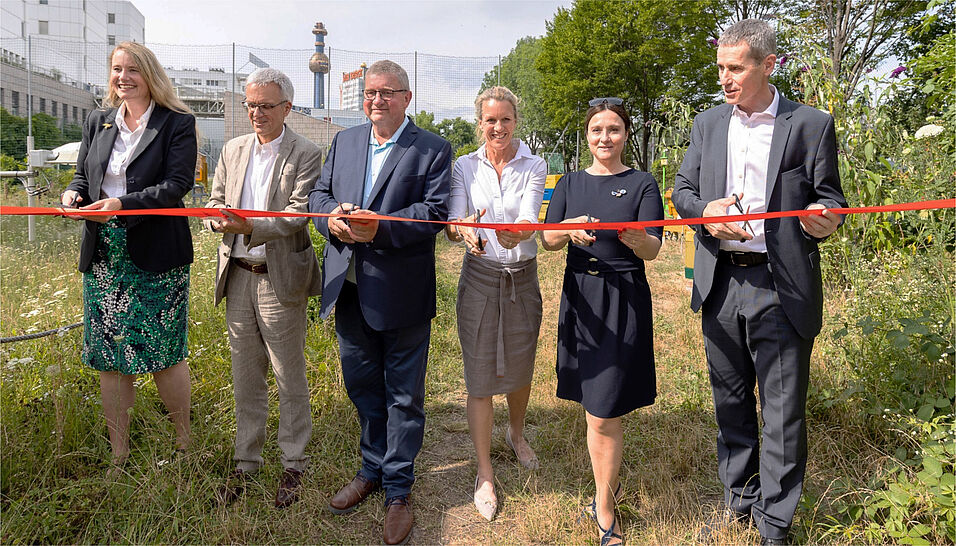On July 4th, the research and teaching apiary of the AECC Biology in Spittelau was officially opened with many honorable guests. Honorary greetings were given by Manfred Prenzel, head of the Center for Teacher Education, Ingeborg Lang, Vice Dean of the Faculty of Life Sciences, Christian Holzer, Head of unit at the Federal Ministry for Climate Protection, Marjana Prvinšek Bokalfrom the Slovenian Embassy and Albert Schittenhelm, President of the Vienna Beekeeping Association. Musical entertainment was provided by beekeeper and saxophonist Sigi Finkel with his quintet the "Saxologen".
After the official opening, teaching students of the AECC Biology were able to present their bee-related didactic projects and research and of course the visitors could also have a look into the beehives which are tended to by the students.
About Bee.Ed
The Bee.Ed project is all about the encounter with the "superorganism" bee. The program was founded by the head of the Austrian Competence Center for Didactics of Biology (AECC Biology) Andrea Möller in 2012 at the University of Trier and taken to the University of Vienna after her appointment. In this project, which is unique in Austria, students of all school types from Vienna and the surrounding area are provided with a direct experience of nature and, through honey bees and wild bees, an everyday approach to the thematic complex of "Education for Sustainable Development" (ESD) is created. Biology didactics students supervise the school classes on site and can thus already gain their first teaching experience. At the same time, they learn how to keep honey bees at school and how to beekeep with students, as well as how to create an attractive habitat for wild bees on the school grounds. The training program is complemented by advanced training courses for other ESD multipliers, such as teachers, environmental educators and beekeepers. In the context of subject-specific didactic research, the impact of learning with bees, for example, on young people's interest in nature or sustainable environmental action, is also being investigated. The findings from the research are in turn incorporated into the development of learning materials and teacher training.
The honey bee colonies in the apiary are cared for by the Bee.Ed student group, which works on a voluntary basis and is made up of students of biology and environmental studies as well as students of other subjects. The first "Bee.Smart" honey from "studied bees" could already be tasted at the opening.

